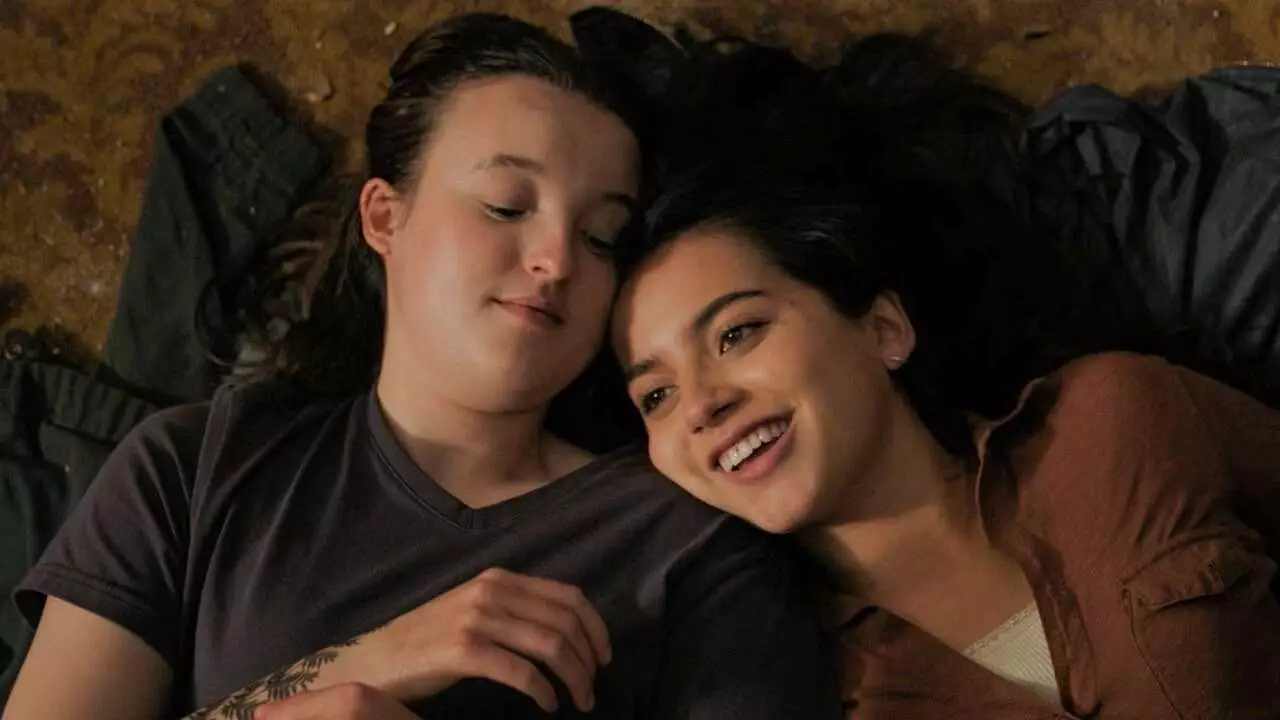HBO’s adaptation of The Last of Us has swiftly evolved from a niche video game storyline into a distinguished entry in contemporary television, captivating viewers who may not have interacted with the franchise before. In an era where TV has become a primary source of storytelling, The Last of Us occupies a unique position, particularly fulfilling the gap left by the monumental Game of Thrones. With its gripping narrative, astonishingly detailed world-building, and character-driven plotlines, the series has become a cultural touchstone. Its return for a second season not only ignited renewed excitement but also reignited intense conversations on representation and fandom dynamics.
A Double-Edged Sword: Acclaim versus Backlash
While critical reception for Season 2 has been overwhelmingly positive—garnering an impressive score of 81 on Metacritic—the disparity between critic and audience ratings reveals a troubling trend in modern fandom. The show has achieved a “must watch” designation, validating its artistic merit and resonance within the television landscape. However, the user score reflects a striking counter-narrative; with 61% of ratings landing at the extremes, many fans have resorted to vacuous complaints about “woke culture” rather than contributing meaningful discourse. This disparity raises questions about viewer expectations and the friction between artistic integrity and audience satisfaction.
Nuance and Complexity: The Storyteller’s Dilemma
The recent episode “Day One” encapsulates this dichotomy well. As Ellie (played by Bella Ramsey) and Dina (Isabel Merced) navigate the treacherous landscapes of a post-apocalyptic Seattle, the series mirrors the game’s emotional core while injecting fresh elements to push the narrative forward. Ellie’s moving serenade and the revelation of Dina’s pregnancy add layers of depth and emotional resonance, elevating the character relationships to new heights. These scenes echo the beauty of love amidst chaos but also clash with some fan responses, which lack the depth necessary to appreciate the intricate storytelling that the series offers.
This recent narrative substitution demonstrates the balancing act inherent in adaptations. The showrunners aim to respect the original source material while also expanding the story into unforeseen territories. Yet, how the audience receives these changes speaks volumes about the broader context of fandom. When fans dismiss nuanced storytelling for an often reductionist critique, they impoverish the discourse surrounding adaptation and the potential for cinematic evolution.
Revisiting Historical Patterns in Fandom
This isn’t the first time HBO’s The Last of Us has faced backlash rooted in its storytelling choices. The controversy surrounding Bill and Frank’s episode stands as a crucial moment that echoed the themes of love, loss, and acceptance in a world gone awry—elements that ultimately earned Nick Offerman an Emmy award. Despite the accolades, vocal segments of fandom responded negatively, highlighting a persistent struggle within the media landscape: the challenge of reconciling art with audience expectations.
As storylines bend and evolve, often reflecting societal changes and the complexities of modern identity, some fans cling to traditional representations, articulating their discontent through a lens of nostalgia often devoid of critical engagement. This raises questions about inclusivity in storytelling: can creators weave authentic narratives that resonate universally while also providing room for marginalized voices?
The Responsibility of Fandom
Navigating this tumultuous landscape calls for a reevaluation not only of how stories are told but also of how fans engage with them. The review bombing phenomena surrounding The Last of Us suggests an urgent need for dialogues that celebrate storytelling’s multifaceted nature rather than undermine it with simplistic critiques. Fans must recognize that the flourishing of narrative diversity enriches the tapestry of TV storytelling, paving the way for future iterations that reflect a broader spectrum of experiences.
Ultimately, as HBO continues to evolve The Last of Us, embracing audacity in storytelling will become increasingly paramount. The challenge lies not merely in whether the stories resonate but in how they compel viewers to challenge their preconceptions, opened up to a world that mirrors our own complexities—embracing the discomfort that often accompanies truly transformative art. In a world where they can choose to champion progress or regress into nostalgia, fans have a remarkable responsibility to foster a culture of appreciation that honors the painstaking work of storytellers passionate about pushing boundaries.

